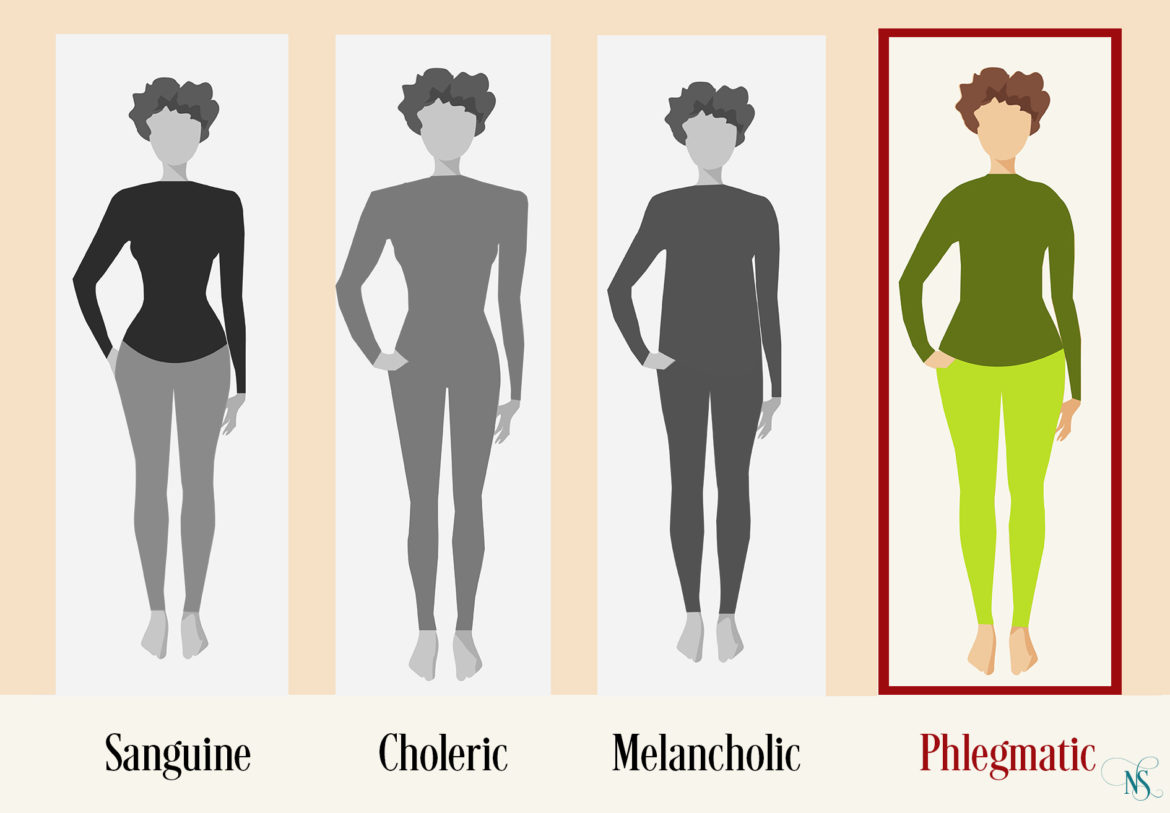The Four Body Types
In Greek Medicine, it is believed that there are four body temperaments that determine our constitution, and thus how we metabolize food. Although all four humors (or temperaments)—blood, yellow bile, black bile and phlegm—exist in all of us, in different quantities, there is usually one that is the dominating humor and which affects what we crave and how we respond to food. Whichever humor is dominant within a person reflects their body type. The four body types are:
Sanguine | Choleric | Phlegmatic | Melancholic
Phlegmatic Temperament (Phlegm – Balgham)
Phlegmatic is considered to be the coldest, most passive, energy conserving constitution.
Humor: Phlegm
Constitution: Cold and Wet
Traits:
- Round face, full cheeks, often dimpled, double chin, pug nose
- Heavy frame with ample flesh and well-developed, often plump or overweight
- Cool, clammy perspiration especially in hands and feet
- Slow, steady appetite often craving sweets, dairy, and starchy foods
- Slow to sluggish digestion, sleepiness/drowsiness common after eating
- Cold, wet and slow metabolism, anabolic metabolism
- Sluggish bowels, though well-formed but slightly soft and loose
- Sweats profuse in heat or physical activity
Predisposition: If out of balance, the following health concerns arise
- Phlegm congestion
- Water retention
- Lymphatic congestion
- Poor venous circulation
- Slow digestion
- Hypothyroid
- Adrenal hypofunction
- Weight gain, obesity
- Frequent colds and flus
- Chronic respiratory conditions
Foods that aggravate: milk, dairy products, fresh cheeses, refined sugar, refined starches and flours, wheat and glutinous foods, cold foods, ice cold drinks, and moist, creamy rich foods.
www.greekmedicine.net/b_p/Four_Temperaments
What does Islam say about body constitution?
There is no direct mention of body types/constitutions in the Qur’an or Sunnah, however the Prophet Muhammad ﷺ did eat foods together that had opposite energetics – which was accepted medicine of that time – as a method of balancing foods. Energetics does not refer directly to types of foods, but rather to their composition and their effect on the moisture, dryness, heat and coldness of the body. It is important to note that the doctor of the Prophet ﷺ was Al Harith Ibn Kalada. He was a companion and the oldest known Arab physician who was educated in and practiced Greek Medicine. (Body constitutions were part of their medical practice).
Reference: Sh. Omar Suleiman’s lecture on the Prophet’s Doctor

